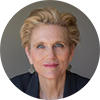Download PDF

More than 1,000 years ago, Cnut the Great became King of England, Denmark, and Norway. A famous illustration depicts Cnut sitting in his throne on the ocean sands commanding the waves to recede. Scholars suggest that his words were not mad or arrogant ones; rather, they were a warning from a wise king to his courtiers that man cannot resist larger powers. If Cnut knew about the waves of change in today’s health care, would he herald the end of solo practice—or applaud it as a viable and necessary model?
Overall, solo private practice is declining. A survey of more than 17,000 physicians found a decrease in the number of solo practitioners from 24.9% in 2012 to 16.8% in 2016.1 In contrast, 26% of ophthalmologists responding to a recent Academy membership survey were in solo practice, a number that declined for the first time in decades. Robert Wiggins Jr., MD, MHA, the Academy’s Senior Secretary for Ophthalmic Practice, reported that younger members, particularly those in training, are less interested in solo practice. Even so, if a quarter of practicing ophthalmologists are in solo private practice, it’s still a viable and robust model.
Like most young ophthalmologists, cornea specialist Natasha Herz, MD, never imagined herself as a solo practitioner. But when her husband landed his dream job in Washington, D.C., and she couldn’t find a position, she bought a practice from a retiring ophthalmologist. In Arizona, Dan Briceland, MD, started his own ophthalmic practice after experiencing contract issues with an existing practice. And in Colorado, Ron Pelton, MD, started his oculoplastics practice immediately after fellowship because he was drawn by the independence. “Solo practice fits my personality,” he said.
Natasha likes the freedom of setting her own schedule. “If I want to take next Tuesday afternoon off to go to my kid’s party—done!” Ron also likes the flexibility. Dan and Natasha value the close relationship with their staff and their direct role in setting the tone of the office. Dan related, “There is no greater joy than to drive to the office with a smile, and that enthusiasm translates to the office culture.”
Ron, Dan, and Natasha all appreciate the efficiency of making decisions without the need to convince a partner or submit to a bureaucracy. Ron runs a lean practice, and while he assumes all the financial risk, he enjoys all the profit.
Solo practice has its stresses, too. Solo docs must shoulder alone the cost of implementing an electronic health records system or purchasing expensive equipment. The recent shift of Medicare beneficiaries into Medicare Advantage (MA) plans can limit access to patients, as many MA plans contract with larger groups or only use an existing health system. And solo practitioners often have less leverage when negotiating a contract with a large payer.
Furthermore, the solo clinician must also be a mini-expert in marketing, practice management, human resources, MIPS, and contracting. Ho Sun Choi, MD, started a Google group, SoloEyeDocs, for solo ophthalmic practitioners to ask questions, share great advice, and find camaraderie. “Our listserv is an invaluable resource,” Ho Sun commented.
Ophthalmology may be particularly well-suited for solo practice. First, as in rural markets, solo ophthalmologists may be well-positioned to serve smaller markets within a larger metropolitan area. These local markets may arise from trade barriers—such as congested roadways or toll bridges—or a strongly developed community. Second, solo ophthalmologists can create demand for their services by providing exceptional care and unique or subspecialty services. Relationships with referring providers, patients, and the community build loyalty to a solo practitioner.
In an era of health care consolidation, can solo ophthalmologists survive? Can a young ophthalmologist consider solo practice? Natasha shared some advice: “The upfront cost may be high, but you more than make up for it in benefits and compensation down the road. The freedom is incredible, and I love my lifestyle. You can do it!”
___________________________
1 www.physiciansfoundation.org/uploads/default/Biennial_Physician_Survey_2016.pdf. Accessed Aug. 15, 2017.